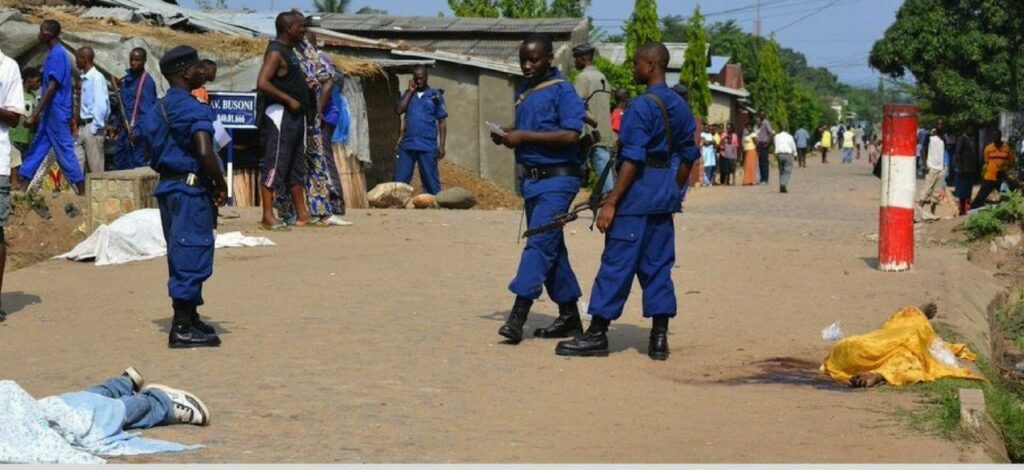Since a couple of hours, Burundi is no longer a State Party to the Statute of the International Criminal Court (ICC). The ICC has not opened an investigation before this decisive date which has been approaching for a year, despite numerous reports indicating grave human rights violations in the country and the complete lack of willingness at national level to investigate and prosecute those responsible for the crimes. Yet, this does not mean that Burundian perpetrators now have entered a safe space: the ICC can still open an investigation into international crimes committed in Burundi before 27 October 2017.
Burundi’s withdrawal takes effect today, making it the only country to withdraw from the Court, in order to shield perpetrators from justice. While our organisations regret that the ICC has has not opened an investigation before the withdrawal taking effect, the country’s leaders are not shielded from justice.
The ICC Prosecutor, Fatou Bensouda, opened a preliminary examination into the situation in April 2016, focusing on cases of murder, torture, rape and enforced disappearance committed since April 2015, which may constitute crimes under ICC jurisdiction (war crimes, crimes against humanity, and genocide). Since proceedings (a preliminary examination in this case) were initiated prior to the date of Burundi’s effective withdrawal, the Prosecutor could request the opening of an investigation into international crimes committed before 27 October 2017 ( Article 127(2) of the ICC Statute).
Therefore, our organisations continue to call on the ICC to open an investigation into international crimes committed by all parties to the crisis (political and military leaders, Imbonerakure militia, armed opposition groups, etc.) as soon as possible.
Shortly before the date of Burundi’s effective withdrawal from the ICC, the UN-mandated Commission of Inquiry on Burundi requested the Court to investigate “as soon as possible” allegations of crimes against humanity committed in the country.
This withdrawal comes at a time where no international actor – neither the UN, the community of East African states, nor the African Union – has managed to stop the repressive spiral or to initiate a real attempt at a political dialogue to get the country out of these crises. Recent reports by FIDH and ITEKA League, as well as the UN, indicate however that the situation continues to deteriorate and that a violent repression continues against the opponents (real or supposed) to the regime of the President. According to investigations conducted by our organisations, between July and October 2017, at least 150 people were reportedly killed; 19 missing; 69 victims of torture; 15 victims of sexual violence and 728 arrested and often detained without any legal procedure.
Our organisations call on the international community, including the African Union and the community of East African States, to take their responsibility to resolve the crisis in Burundi, particularly by committing to recommence an inclusive political dialogue.
Context
In April 2015, President Pierre Nkurunziza announced he was seeking a third presidential term, considered by many to be unconstitutional. This announcement plunged the country into a deep political crisis that was accompanied by a serious security, humanitarian and human rights crisis. More than 423,000 people fled Burundi between April 1, 2015 and August 2017, mostly to escape violence committed mainly by government forces. [1]
Source link : https://www.fidh.org/en/region/Africa/burundi/burundi-withdraws-from-the-icc-an-attempt-to-shield-perpetrators-from
Author :
Publish date : 2017-10-27 07:00:00
Copyright for syndicated content belongs to the linked Source.
